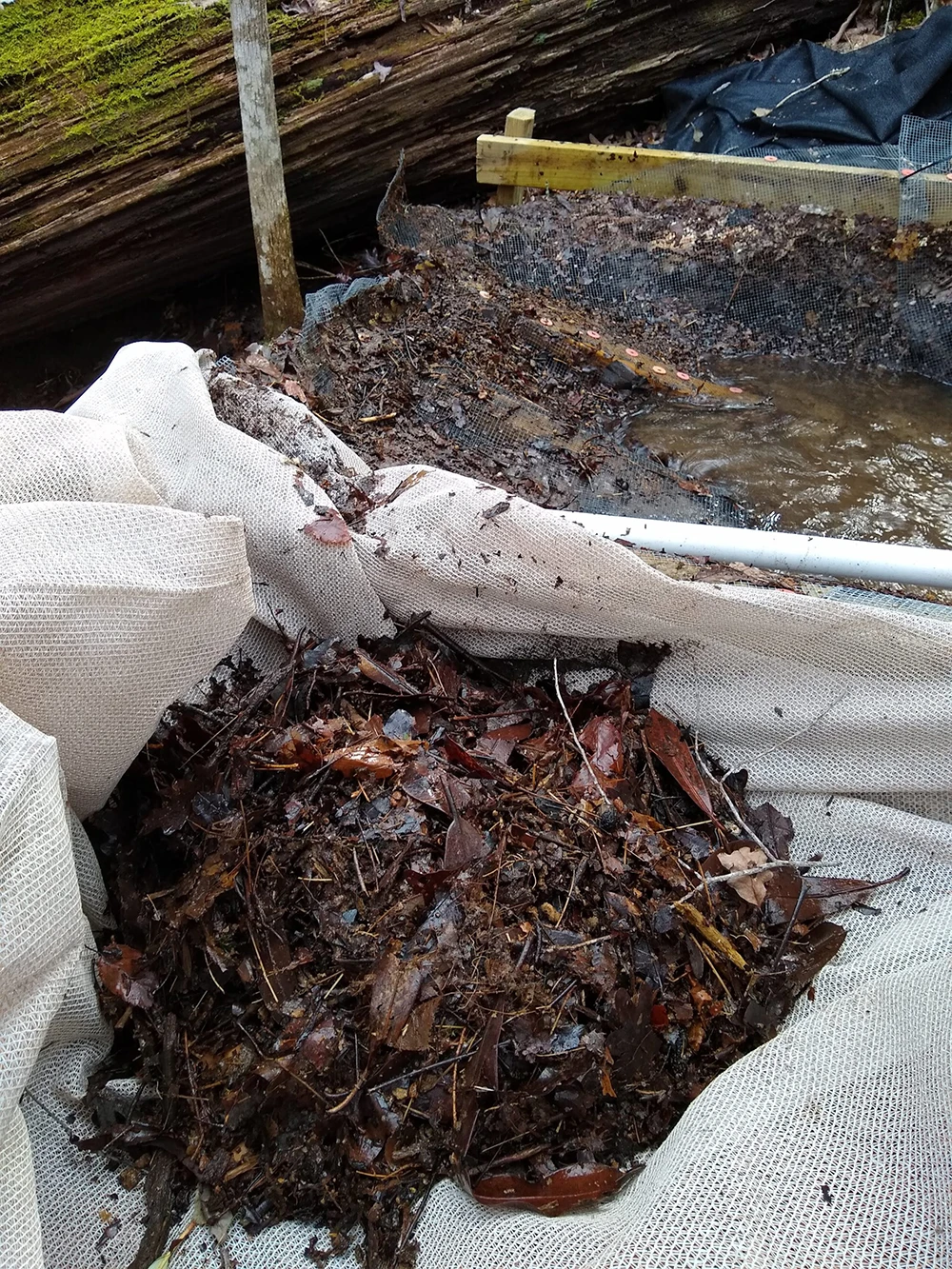We have had a busy and productive year in the lab!
1) The lab received funding this spring to study the effects of increased temperatures on organic matter processing in detritus-based streams. We will be using data from temperature manipulation experiments at multiple scales as well as natural temperature gradients to test whether ecosystem-level responses to temperature follow predictions of metabolic ecology. We will also be developing network models to simulate the effects of warming temperatures on organic matter processing. PIs include, J. Benstead (U of Alabama), V. Gulis (Coastal Carolina), A. Helton (UConn), E. Hotchkiss (V Tech), and A. Rosemond (U of Georgia).
2) Kait Farrell defended her dissertation in April and moved on to a great new post-doc position working with Cayelan Carey at Virginia tech. Check out what Dr. Farrell is working on now. We are excited for Kait but will miss her here in the Rosemond lab!
3) Caitlin received an NSF GRFP this spring! Congrats to Caitlin.
4) Our lab has 4 new publications out so far in 2017! Check out the publications page.
Dr. Amy Rosemond and lab alum David Manning are co-authors on a paper led by Dr. Jen Follstad Shah looking at the temperature sensitivity of leaf litter breakdown. The team conducted a global meta-analysis to understand how leaf litter processing may change as a result of increased global temperatures. The paper was published in Global Change Biology.
Dr. John Kominoski, former postdoctoral associate in our lab,, Research coordinator, Phillip Bumpers, and colleague Vlad Gulis all recently published work from our whole-stream nutrient enrichment experiments. John’s paper, published in Limnology and Oceanography, measured the response of whole-stream metabolism to a gradient of nutrient enrichment in detritus based streams. This study shows that nutrient enrichment stimulated whole-stream respiration, which responded relatively more to nitrogen than phosphorus inputs. Nutrient enrichment also resulted in greater temporal variation in respiration and organic matter standing stocks.
Phillip now has his second thesis chapter in press at Freshwater Biology. This study shows that nutrient enrichment of detritus-based streams increased prey consumption by larval salamanders which was largely driven by an increased proportion of prey utilizing green (algae) food resources. Changes in salamander diets were effected more by phosphorus enrichment and tracked relative changes in basal resources.
In examining the underlying microbial responses to stream-reach scale nutrient enrichment effects, Colleague Dr. Vlad Gulis led an interesting study examining the difference effects of nitrogen and phosphorus on fungal stoichiometry and growth rates. These experiments established a stoichiometric ratio of fungal tissue of ca. 100:9:1 and showed that fungi are relatively homoestatic in C:N ratio but not C:P! Further, N stimulated fungal growth and production, but P did not. Thus, Vlad showed that when fungi have access to P, they store it, but when they have access to N, they grow!
5) We have two other collaborative projects going on in the lab in addition to our new warming project. Those include examining patterns in and effects of elevated specific conductance in urban streams led by Emily Johnson (with Seth Wenger) and determining ecological effects of flow conditions on ecosystem function led by PhD student Caitlin Conn (with Seth Wenger, Mary Freeman, Todd Rassmussen, Kyle McKay, and John Schramksi).
6) We all had great experiences at freshwater science meetings this spring and summer. Amy, Phillip, Cait, and Emily all attended the 4th Symposium on Urban Stream Ecology (SUSE) before the Society for Freshwater Science annual meeting. SUSE was a very fun and productive meeting held at Haw River State Park in North Carolina. And of course SFS was great as always. Amy got to attend the Symposium for European Freshwater Sciences (SEFS) meeting in Olomouc, CZ in July.
7) Amy really enjoyed being able to provide a webinar this past spring in EPA’s Numeric Nutrient Criteria Webinar series.
8) Caitlin also gave a webinar this spring to the US Army Corps of Engineers. Cailtin and Seth Wenger discussed the ongoing work here in Athens in the Middle Oconee River trying to understand how variation in flow affects ecosystem function.
9) Finally – we start a new semester welcoming Carolyn Cummins as a new master’s student in the Rosemond lab this fall. She will be studying the effects of temperature on leaf litter decomposition. More about Carolyn to follow!
